FF TOPICS
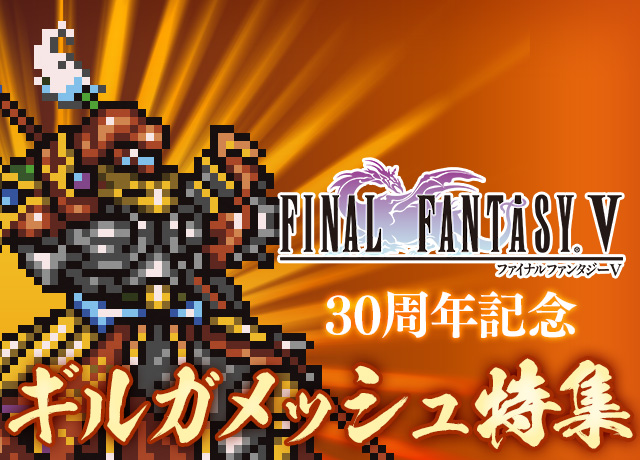
『ファイナルファンタジーV』30周年記念 ギルガメッシュ特集
12月6日で『ファイナルファンタジーV』は発売から30周年を迎えます!
『FFV』にはたくさんの印象的なキャラクターが登場しますが、主人公バッツの愛すべきライバル、ギルガメッシュを大特集!『ファイナルファンタジーV』以降、色々なところに雄姿を現すギルガメッシュ。その中からいくつかをご紹介いたします。
特集の最後にはギルガメッシュの生みの親、野村哲也氏からのコメントもありますのでお楽しみに!
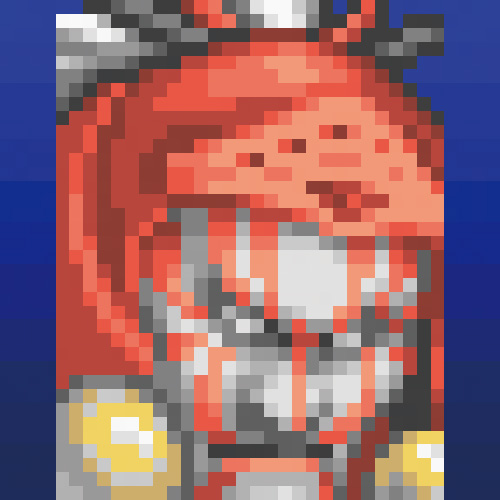
ファイナルファンタジーV
ギルガメッシュのデビュー作品。暗黒魔道士エクスデスの右腕的な立場でありながら、人情に厚くどこか憎めない性格の持ち主です。
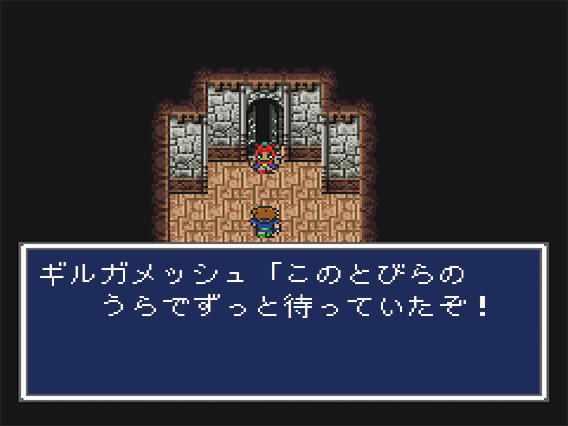
エクスデスの企みから世界を救うべく旅を続けるバッツたちの前に、何度も立ちはだかるギルガメッシュ。
特に印象深いのはビッグブリッジでの戦いではないでしょうか?ギルガメッシュのテーマ曲ともいえる「ビッグブリッヂの死闘」もバトルを盛り上げてくれました。
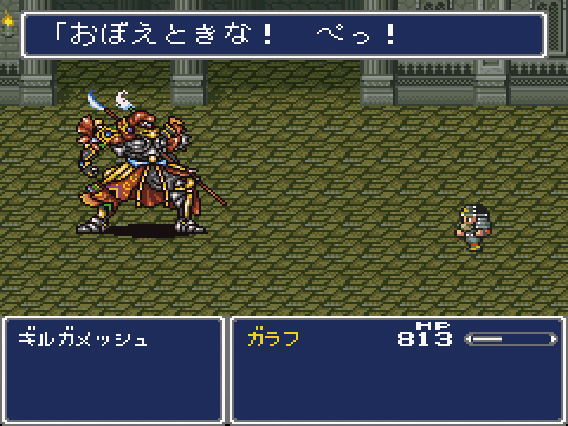
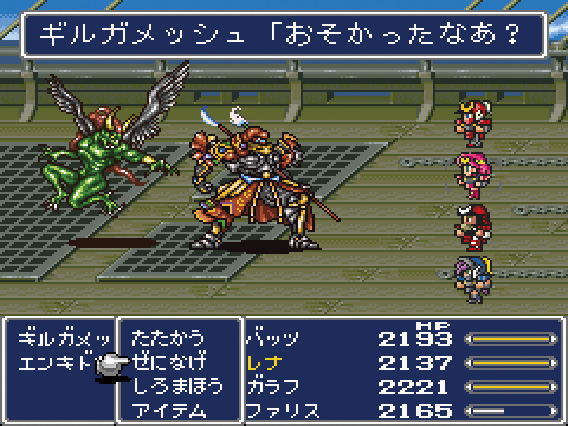
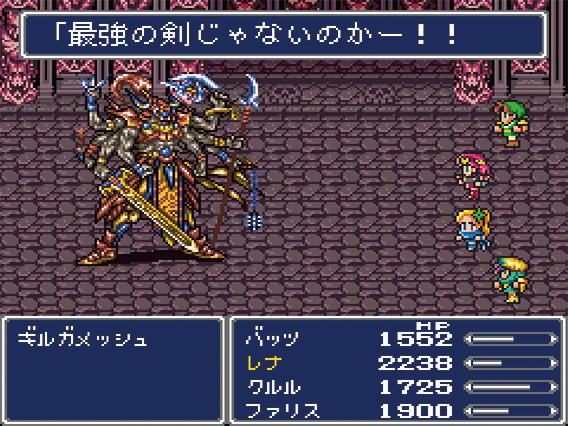
ギルガメッシュはバッツやその仲間たちと幾度もバトルを繰り広げる中で、友情のようなものを感じ始めます。そして『FFV』の物語終盤ではバッツたちのピンチに駆けつけ、力を貸してくれるのですが…。
この先の展開はぜひゲームで確かめてみてください!
ここからは『FFV』での登場以降、『FF』シリーズの色々なところで登場する「ギルガメッシュ」を少しだけご紹介!
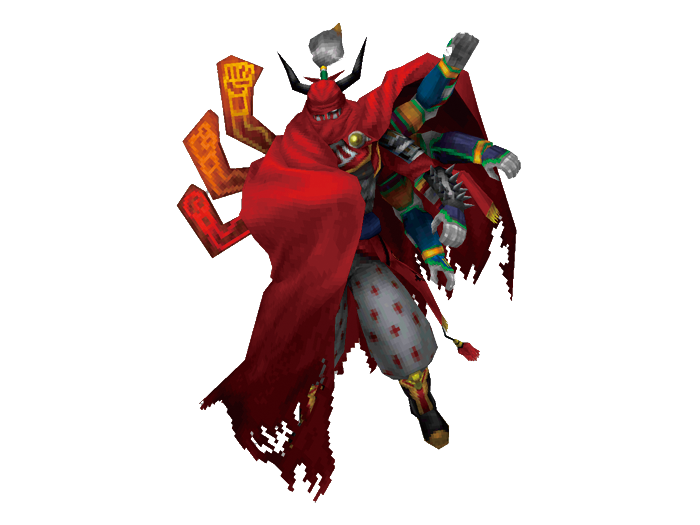
ファイナルファンタジーVIII
『ファイナルファンタジーVIII』のギルガメッシュは次元の狭間をさすらう謎の剣客として登場。ある条件を満たすとバトル中に時々現れるようになります。自身とともに出現する4本の剣の中から1本を選んで攻撃を繰り出し、その効果は選んだ剣によって異なります。
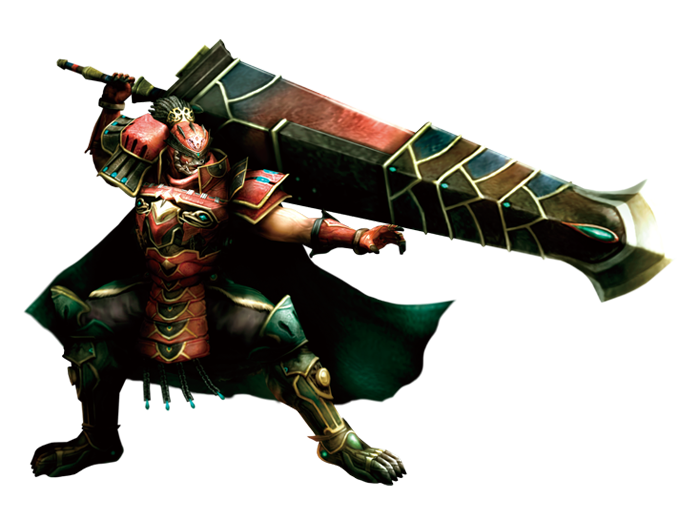
ファイナルファンタジー零式
『ファイナルファンタジー零式』に登場するギルガメッシュはロリカ同盟の国王にして玄武クリスタルのルシとして登場します。ミリテス皇国の攻撃により国が壊滅し、自身もルシとして暴走。武器という名の力を求めて出会う者すべてに挑みかかります。
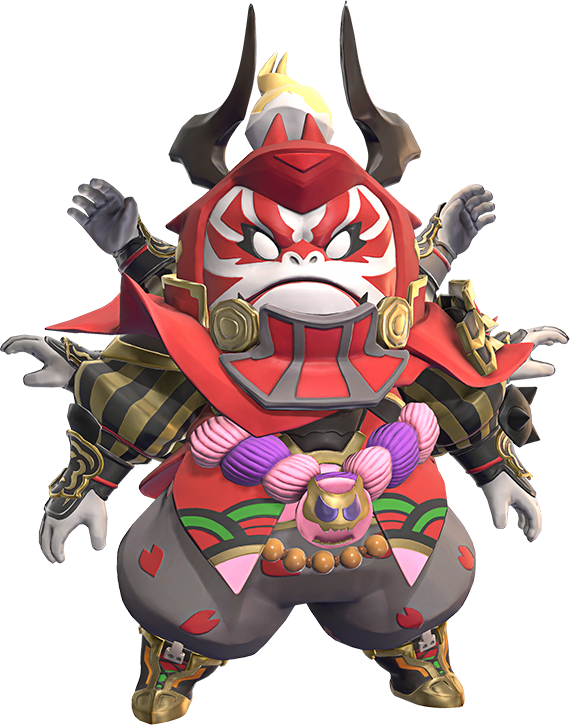
チョコボGP
『チョコボGP』に登場するギルガメッシュは、何度もチョコボ達の前に現れてレースを挑んでは邪魔をしてきます。相手に突然強く出られるとビビってしまう臆病な一面もあるようです。
『ファイナルファンタジー』シリーズの様々な場面に登場するギルガメッシュは、敵でありながら時にはコミカルに場を和ませてくれたり、時には主人公を助けてくれる存在であったりと一言では語れないキャラクターです。ぜひゲームの中での彼の活躍をチェックしてみてください!
最後にギルガメッシュの生みの親、野村哲也氏からのコメントです!
『FFV』30周年との事で自分の開発デビュー作から30年も経ったのかと白目になりそうです。
当時を思い起こすと、自分はキャラデザやディレクターという大役に興味はなく、
モンスターが人気だった『DQ』との格差に悩むモンスターデザイナーでした。
何とか『FF』のモンスターからも人気者を出したいとサボテンダー、トンベリ等をデザインしましたが、
まさにギルガメッシュもその1体でした。
当時は今と違い、ほとんどのモンスターはデザインが先行し後から企画に設定してもらうという工程でした。
自分としては『FFV』のスケッチブックの中で一押しモンスターとしてデザインしたのが、
腕を複数持ち、全ての腕に異なる武器を持つ魔人の様なギルガメッシュでした。
そして、そのスケッチブックの別ページに描いていた背中に複数の武器を背負った「ベンケイ」というモンスター。
この2体のモンスターが変身前、変身後のギルガメッシュとして企画されました。
その後シナリオにも組み込まれ、更にはシナリオにない熱い会話や演出をバトル中に挿入するという
大技を当時の企画担当者が行い、新人だった自分は色んな意味で感動したのを憶えています。
それが単なる斬られ役ではなく個性を持ったモンスター「ギルガメッシュ」の誕生でした。
ちなみに、当時はゲームの実装が先行する形式だったので、
それ以降のギルガメッシュは天野さんのイラストをベースにしています。
それから数年後、再びギルガメッシュを『FFVIII』に登場させてから、
未だに次元の狭間を彷徨い続け、様々なFFシリーズに現れる人気者になりました。
当初は多くのモンスターの1体でしたが、今では立派なキャラクター枠にまで出世したという稀有な存在です。
今後、縁起物としても珍重される様な存在となり、無事に元の世界に戻れることを願っております。
野村
関連特集:
『FFV』30周年グッズニュースはこちらから!
LOGO & IMAGE ILLUSTRATION:© YOSHITAKA AMANO